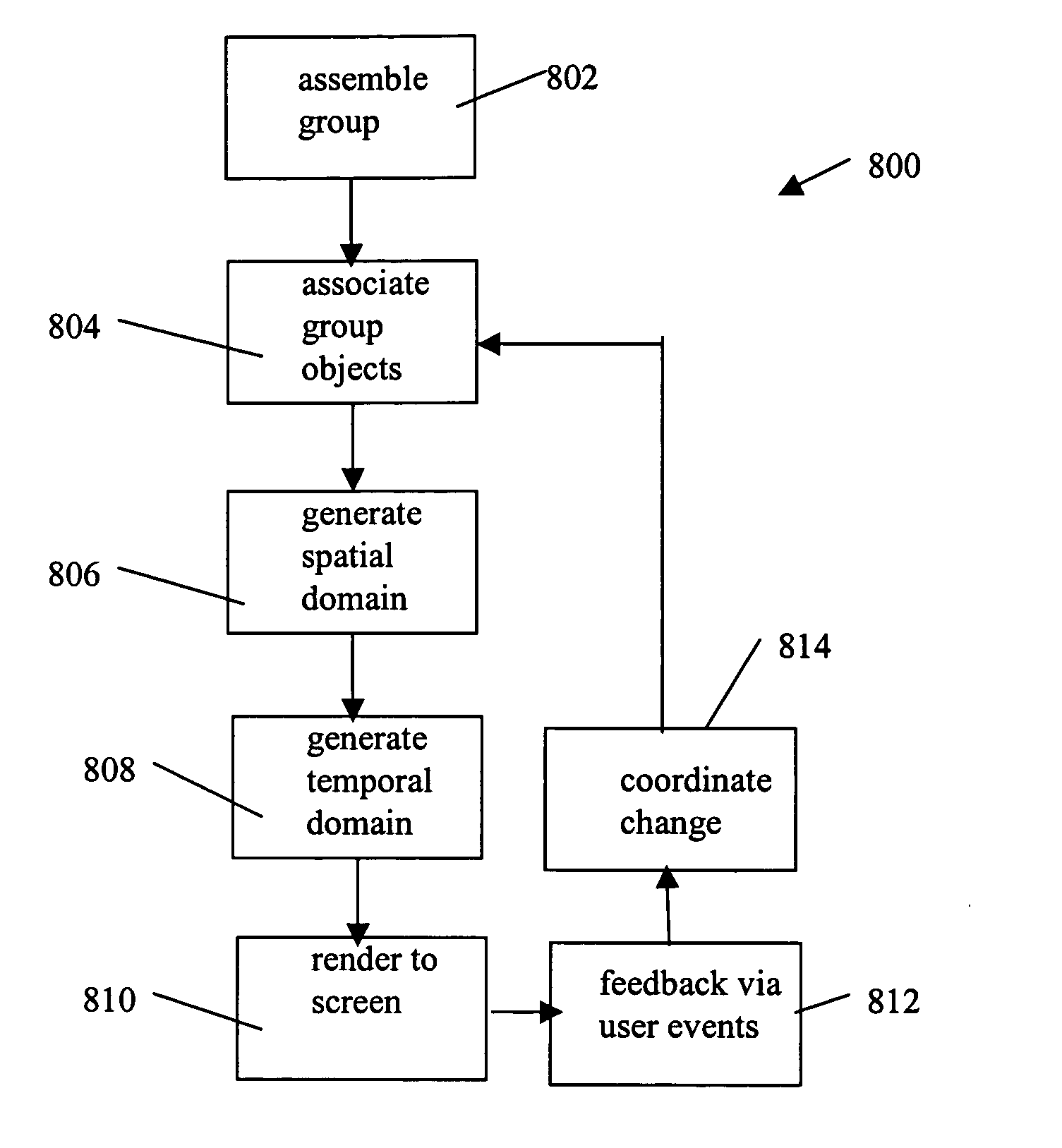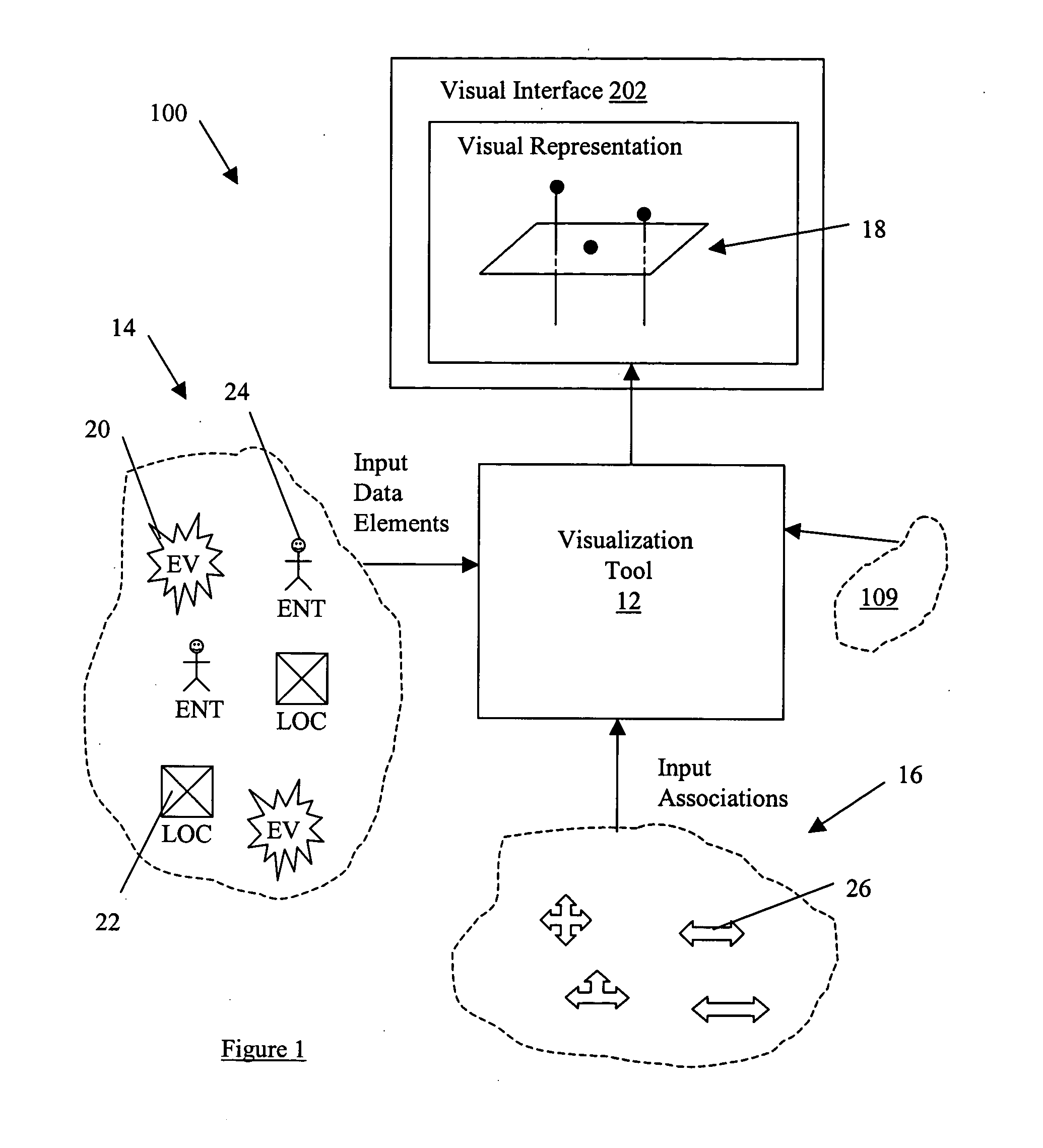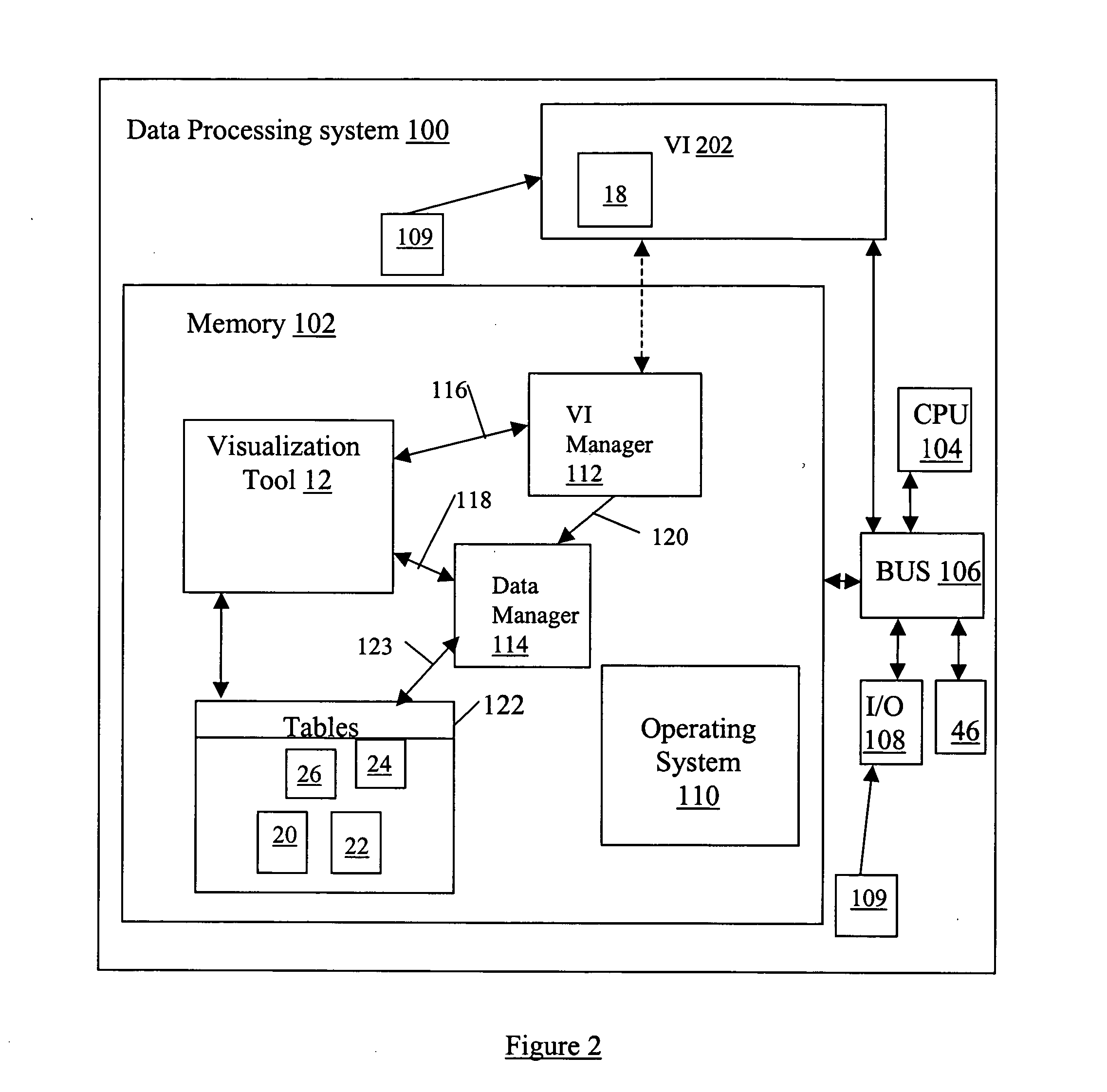System and method for visualizing connected temporal and spatial information as an integrated visual representation on a user interface
a temporal and spatial information and integrated visual representation technology, applied in the field of interactive visual presentation of multidimensional data on the user interface, can solve the problems of limited human short term memory, expensive technique, and limited techniqu
- Summary
- Abstract
- Description
- Claims
- Application Information
AI Technical Summary
Benefits of technology
Problems solved by technology
Method used
Image
Examples
example objects 14
Example Objects 14 With Associations 16
In the visualization tool 12, specific combinations of associated data elements (objects 20, 22, 24 and associations 26) can be defined. These defined groups 27 are represented visually as visual elements 410 in specific ways to express various types of occurrences in the visual representation 18. The following are examples of how the groups 27 of associated data elements can be formed to express specific occurrences and relationships shown as the connection visual elements 412.
Referring to FIGS. 6 and 7, example groups 27 (denoting common real world occurrences) are shown with selected subsets of the objects 20, 22, 24 combined via selected associations 26. The corresponding visualization representation 18 is shown as well including the temporal domain 402, the spatial domain 400, connection visual elements 412 and the visual elements 410 representing the event / entity / location combinations. It is noted that example applications of the group...
PUM
 Login to View More
Login to View More Abstract
Description
Claims
Application Information
 Login to View More
Login to View More - R&D
- Intellectual Property
- Life Sciences
- Materials
- Tech Scout
- Unparalleled Data Quality
- Higher Quality Content
- 60% Fewer Hallucinations
Browse by: Latest US Patents, China's latest patents, Technical Efficacy Thesaurus, Application Domain, Technology Topic, Popular Technical Reports.
© 2025 PatSnap. All rights reserved.Legal|Privacy policy|Modern Slavery Act Transparency Statement|Sitemap|About US| Contact US: help@patsnap.com



